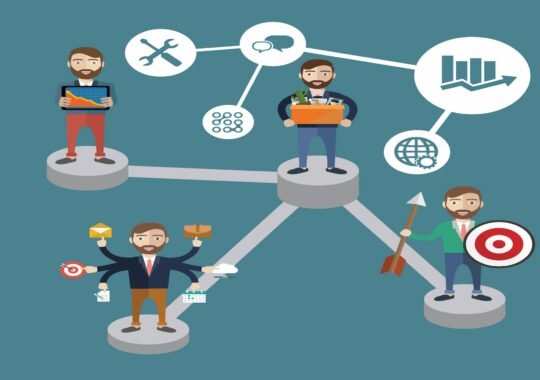Transitioning from a candidate to an influential leader is essential in today’s work environment. While technical skills are important, genuine success relies on self-awareness, adaptability, and strategic growth. Organizations adopting this comprehensive approach gain a competitive advantage by utilizing resources to identify and develop high-potential individuals. Leadership development isn’t immediate; it’s fostered through assessments and growth plans, enabling companies and leaders to unlock their full potential. Key tools in this process include leadership assessments and coaching. These methods do more than just highlight strengths or weaknesses—they help individuals meet organizational needs and lead effectively. By integrating data-driven evaluations with tailored coaching, companies can prepare candidates for leadership roles, ensuring they have the insight and flexibility to excel.
Understanding Leadership Assessments
Leadership assessments are structured, research-backed tools designed explicitly to evaluate an individual’s potential for success in management and executive roles. Unlike conventional job fit assessments, which generally focus on immediate suitability for a role, leadership assessments shift the focus to forecasting future performance by taking into account critical qualities such as emotional intelligence, resilience, learning agility, strategic thinking, and sound decision-making. Assessments that truly measure these deeper traits provide organizations with predictive insights that go beyond what can be gleaned from resumes or interviews, revealing who has both the readiness and raw potential to lead and inspire others.
These assessments often include a variety of tools, such as personality tests designed to uncover intrinsic motivations and behavioral patterns, comprehensive 360-degree feedback instruments, situational judgment exercises, and case study evaluations that simulate real-world executive challenges. When paired with executive search with True Platform, these insights become even more powerful, allowing organizations to identify and recruit leaders who are not only qualified on paper but have the measurable potential to drive long-term success. By consolidating results from these varied approaches, organizations gain a holistic, data-driven understanding of a candidate’s strengths, areas for growth, and readiness to handle the pressures and complexities associated with leadership roles. This multidimensional view helps organizations pinpoint not just who can manage, but who can lead transformational change in the future.
The Impact of Assessments on Hiring Decisions
- Objective Evaluation: Leadership assessments offer a consistent, objective, and data-backed method for evaluating candidates. This minimizes subjective decision-making and helps reduce both overt and unconscious biases that can inadvertently influence hiring outcomes. When thoughtfully applied, assessments create a more equitable selection process, leveling the playing field for all potential leaders.
- Predictive Insights: Organizations use assessment outcomes to strategically match individuals to roles where they are realistically most likely to succeed. By pairing leadership styles and capabilities with the specific needs of a role and aligning them with organizational strategy and culture, companies strengthen business results and improve workforce stability.
- Enhanced Engagement: Leaders identified through robust, transparent assessment methods foster higher levels of trust and engagement among their teams. When employees believe their leaders have been chosen for the right reasons, they are more likely to stay motivated and loyal. High-quality leadership is closely tied to improved employee retention and increased morale within organizations.
For organizations committed to excellence, incorporating well-designed leadership assessments during the hiring and promotion processes isn’t just advantageous—it is transformative. Leaders who are brought in or promoted through such rigorous evaluation processes are typically better prepared and positioned for long-term organizational success. Moreover, this approach fosters a culture where leaders continually seek growth and feedback, thereby further reinforcing organizational resilience.
The Role of Coaching in Leadership Development
While assessments illuminate a leader’s current state, leadership style, and latent potential, coaching acts as the catalyst for meaningful, sustainable growth. Leadership coaching, typically delivered as a confidential one-on-one partnership, targets the unique needs, strengths, and ambitions of each individual. It is an interactive, goal-driven process that often zeroes in on enhancing strategic thinking, boosting emotional regulation, improving conflict resolution, and fostering effective team leadership. Coaching has been proven to lead to measurable behavioral changes, empowering leaders to tackle new challenges with increased confidence and clarity.
- Skill Enhancement: Through regular coaching sessions, leaders can fine-tune and expand critical abilities, including communication, influence, delegation, and creative thinking. These skills are essential for driving teams forward in rapidly changing environments.
- Behavioral Change: With thoughtful, data-informed feedback as their guide, leaders are inspired and supported to shed unproductive habits and adopt more effective, high-impact behaviors. This direct approach makes coaching a practical tool for achieving tangible business outcomes.
- Transition Support: Both new and transitioning leaders benefit profoundly from coaching. It provides clarity and reassurance during periods of change, helping them establish credibility, build new relationships, and manage uncertainty effectively.
Integrating Assessments and Coaching for Leadership Success
The combination of thorough assessment and careful coaching is what genuinely enhances leadership potential. Assessments carefully diagnose a leader’s existing capabilities, highlight hidden strengths, and identify areas requiring growth—these then become the foundation of a coaching relationship built on trust and accountability. This ongoing cycle of objective feedback and supported action creates leaders who not only possess the skills required on paper but also continually refine and expand both their capabilities and mindset to adapt to shifts within the organization and the broader market.
By investing in this integrated, strategic approach, organizations create a robust talent pipeline that is both deep and resilient. Such a system ensures that successors are well-prepared in advance, and high-performers gain a deeper understanding of both their unique strengths and potential blind spots. This, in turn, strengthens succession planning and reduces risks associated with leadership transitions.
Conclusion
Leadership is a deliberate journey—one that depends on the right mixture of assessment-driven insight and personalized coaching. Organizations that prioritize comprehensive, ongoing leadership development secure a future defined by strong, adaptable, and deeply committed leaders. In today’s business landscape, leveraging the joint power of assessments and coaching is not just a pathway to success for individual candidates; it has become the cornerstone of a healthy, resilient, and future-ready organizational culture.





